MAPS Bulletin Winter 2017: Vol. 27, No. 3
“The movement has evolved to the point where we can laugh at ourselves now.”
—MAPS Founder Rick Doblin, Ph.D.
In April 2017, over 3,000 researchers, activists, and attendees from forty-two countries gathered at the Oakland Marriot City Center for Psychedelic Science 2017 hosted by MAPS and the Beckley Foundation. It was the world’s largest psychedelic conference ever. At this year’s historic conference, the international community came together to explore new research into the benefits and risks of MDMA, LSD, psilocybin, ayahuasca, ketamine, ibogaine, marijuana, and much more. The conference had 245 volunteers who dedicated a total of 4,000 hours to working and collaborating along the ever-growing MAPS staff, making this year’s conference such a success.
During the six-day gathering, there were over 227 presentations, 12 full-day workshops, 15 film screenings, 15 entertainment acts, 14 community and partner forums, a sunset cruise, a psychedelic comedy banquet, an additional Psymposia Stage, poster sessions, a researcher’s seminar, a free and open to the public marketplace full of more than 60 vendors and exhibitors with late-night dancing celebrations, and more. The impact and success of this year’s Psychedelic Science 2017 conference deserves a trip back in time exploring the psychedelic gatherings that helped to shape it in order to truly appreciate the growth of a movement that has been multiplying for over 50 years.

It was February 24, 1990, when MAPS Founder Rick Doblin, Ph.D., and Alise Agar Wittine, the Omega Foundation San Francisco Coordinator, put together one of one of the first MAPS’ gatherings of psychedelic science. The gathering, called Regulation or Prohibition: Psychedelics in the 1990s, was held at the Claremont Hotel in Berkeley, California, gathering speakers such as psychedelic research pioneers Ram Dass, Ralph Metzner, and Timothy Leary; author Laura Huxley; Native American Church President Emerson Jackson; Mark Kleiman, a lecturer in criminal justice and drug policy at Harvard’s Kennedy School of Government; author Andrew Weil; author Terence McKenna; and Albert Hofmann Foundation President Robert Zanger. In addition to the legendary speakers that attended this event, there were two afternoon workshops on “Psychedelics: Plants and Native Cultures” and “Psychedelics: Legal and Practical Challenges of Research.” The purpose of the conference was to “facilitate the efforts of psychiatrists and psychotherapists interested in exploring the use of MDMA and other psychedelics in psychotherapy and scientific research,” as written in the letter that Doblin sent out to MAPS supporters in 1990.
The next gathering of this magnitude was MAPS’ 1993 Psychedelic Summit commemorating the 50th anniversary of Albert Hofmann’s discovery of LSD. This three-day gathering began on April 16, 1993, in Santa Cruz, California, and ended with a 12-hour marathon of presentations in San Francisco, California. For those who don’t know, Albert Hofmann was the Swiss chemist who first synthesized LSD on November 16, 1938. It wasn’t until five years later on April 16, 1943, that Hofmann accidently discovered the effects of the psychedelic he had previously synthesized and set aside. Hofmann later dedicated his life work to understanding how LSD, psilocybin and other psychedelics had potential benefits when combined with psychotherapy and/or meditation and/or other spiritual practices.
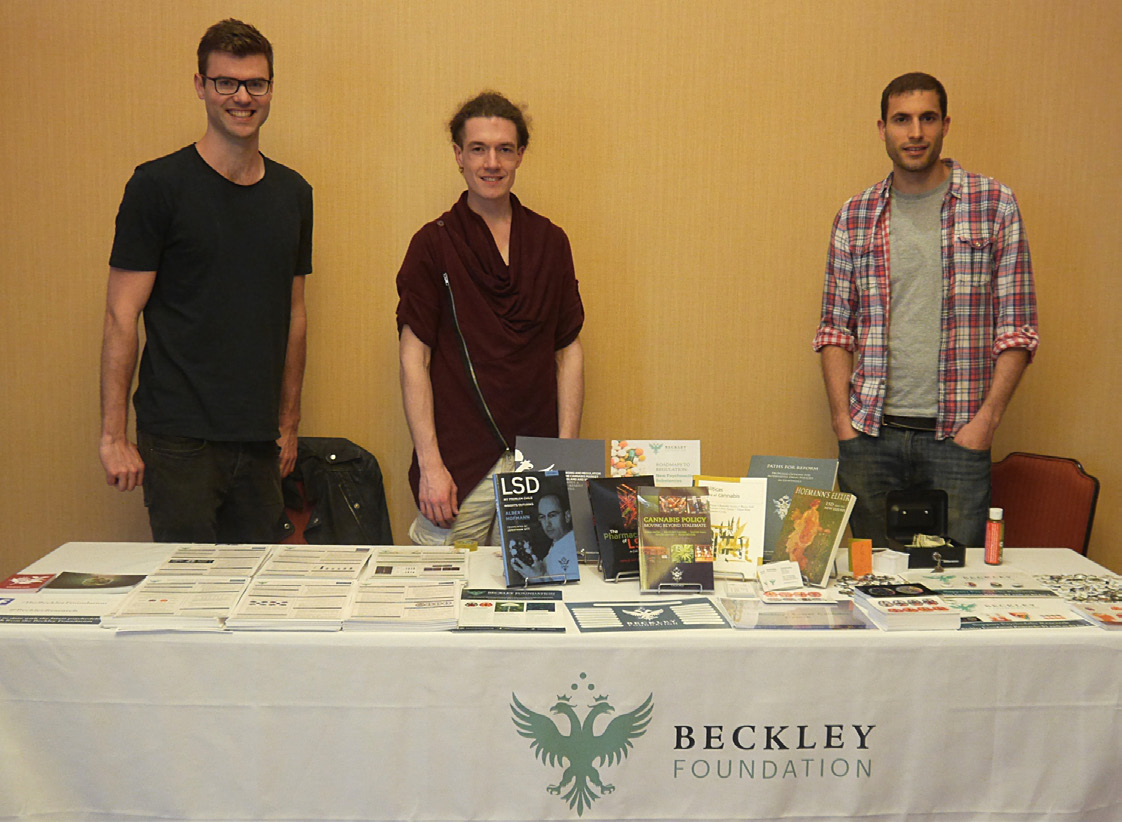
Commemorating the discovery of LSD at the three-day Psychedelic Summit was intended to remind people of the scientific research that had been happening before psychedelics were made illegal, and to gather donations for future psychedelic research. It achieved both of those goals, with major media covering the event, and gathering over 1,000 people and 50 prominent speakers. Reflecting on the event, Rick Doblin told the Los Angeles Times, “We’ve been hunted down and branded as social criminals. But we’re coming out of the closet now, because these drugs—when used responsibly—have benefits. We want society to take advantage of what LSD has to offer.” The Psychedelic Summit raised a total of $9,000 for LSD and MDMA research and marijuana law reform. This marked the beginning of what would eventually grow into the Psychedelic Science conferences.
Fast-forward 13 years to the International Symposium on the Occasion of the 100th Birthday of Albert Hofmann, held in Basel, Switzerland from January 13–15, 2006, and hosted by the Gaia Media Foundation. The symposium’s motto was, “The Spirit of Basel,” and recognized Hofmann’s book LSD: Problem Child and Wonder Drug. This conference gathered about 2000 people and was an outstanding success. MAPS also celebrated its 20th anniversary in 2006 at Burning Man, featuring many scientific talks. Just two years later, the Gaia Media Foundation organized the World Psychedelic Forum, held in Basel, Switzerland, from March 21–23, 2008. More than 2,000 attendees from 37 countries joined the 2008 forum to learn and hear presentations from psychedelic researchers and advocates from around the world.
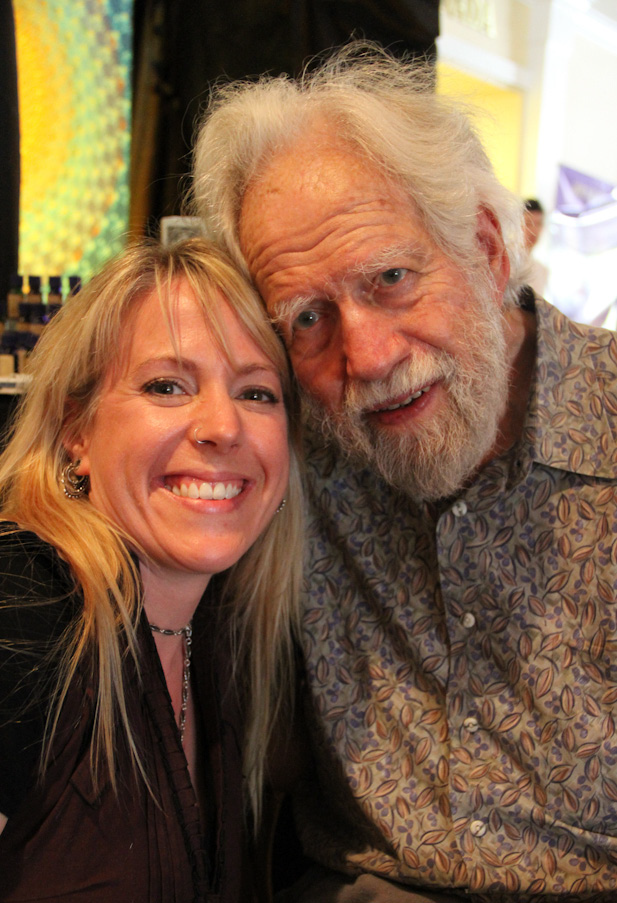
The first official Psychedelic Science conference, Psychedelic Science in the 21st Century (Psychedelic Science 2010) was hosted by MAPS, the Heffter Research Institute, the Beckley Foundation, and the Council on Spiritual Practices. The conference took place at the Holiday Inn Hotel in San Jose, California, from April 15–18, 2010. The conference gathered roughly 800 attendees from around the world. There was also a special track on ayahuasca organized by Bia Labate, Ph.D. The four-day conference offered Continuing Medical Education (CME) and Continuing Education (CE) credits for physicians, psychiatrists, psychologists, nurses, and social workers, and included a Researcher’s Seminar to allow international psychedelic researchers to share, explore, and learn from one another’s ongoing work. Topics discussed at the seminar included how to conduct the ideal therapy session, protocol purpose and development, and patient safety. Offering these professional education opportunities for practicing clinicians and researchers remains a top priority for Psychedelic Science conferences. Psychedelic Science in the 21st Century was the largest conference on psychedelic research to take place in the U.S. in 17 years, following the Psychedelic Summit of 1993.
One of the greatest highlights of Psychedelic Science 2010 was a banquet event to honor the lifetime achievements of chemist Alexander “Sasha” Shulgin, Ph.D., and his lifetime partner, author and psychologist Ann Shulgin. Sasha Shulgin became best known for rediscovering MDMA (which was first synthesized in 1912), discovered hundreds of novel psychedelics, and together with Ann, co-authored the groundbreaking books PiHKAL and TiHKAL. The Shulgin benefit banquet fittingly coincided with MAPS’ MDMA-assisted psychotherapy for PTSD research, which had successfully expanded that year.
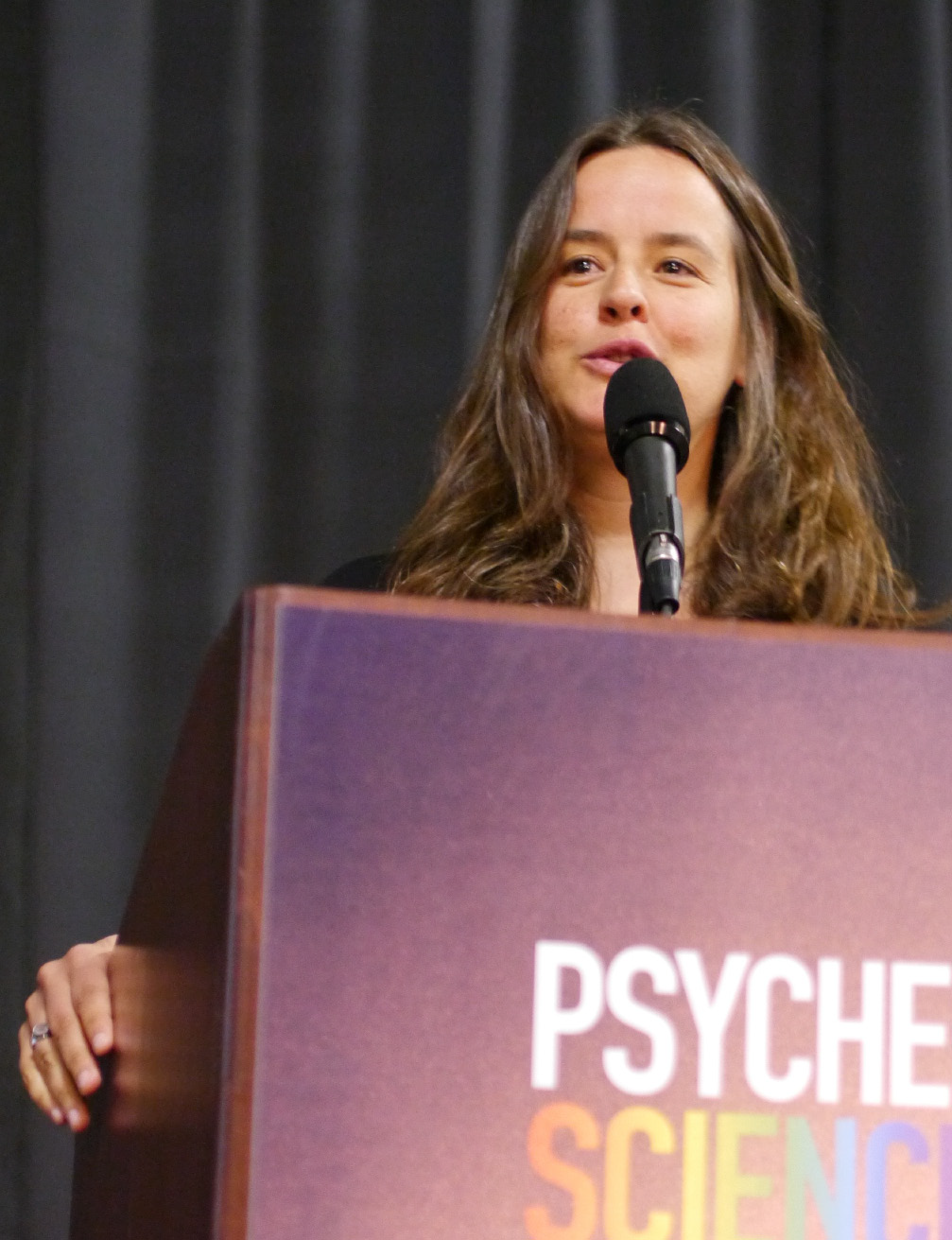
“2010 was a major breakthrough in the sense that it really showed what MAPS could do, that this was something bigger than anything we’d done before, that we could help the community organize,” explains Doblin. “The clinical teams started using the conferences to organize their meetings as well, because we were bringing so many researchers there. It was tremendously successful.” Some of the conference attendee’s responses where highlighted in the Winter 2010 edition of the MAPS Bulletin. As author David Jay Brown wrote, “Wow, the conference was amazing! Congratulations for putting together the most important conference on psychedelic science in human history.”
Building on the format and success of the 2010 conference, Psychedelic Science 2013 was also co-hosted by MAPS, the Heffter Research Institute, the Beckley Foundation, and the Council on Spiritual Practices. This conference took place at the Oakland Marriot City Center in Oakland, California, from April 18–23, 2017. The conference gathered over 100 of the world’s leading psychedelic researchers and 1,900 international attendees over the course of six days filled with workshops, presentations, an awards banquet, films, scientific poster sessions, a sunset cruise, CME and CE credits, and a researcher’s seminar.

Doblin also expressed that the partnership with Anthropologist Bia Labate, Ph.D., whose contribution included curating an entire conference track on plant medicines such as ayahuasca and ibogaine, greatly added to the overall success of 2013. Labate has an extensive knowledge of plant medicine, specifically ayahuasca, which has been growing significant interest amongst people in the United States and across the world. Her knowledge of the field of researchers exploring plant medicines globally, added an additional layer of scientific expertise to Psychedelic Science 2013.
“When people came to our 2013 conference in Oakland, where we were able to provide a medical marijuana area, it just felt like freedom,” remembered Doblin.
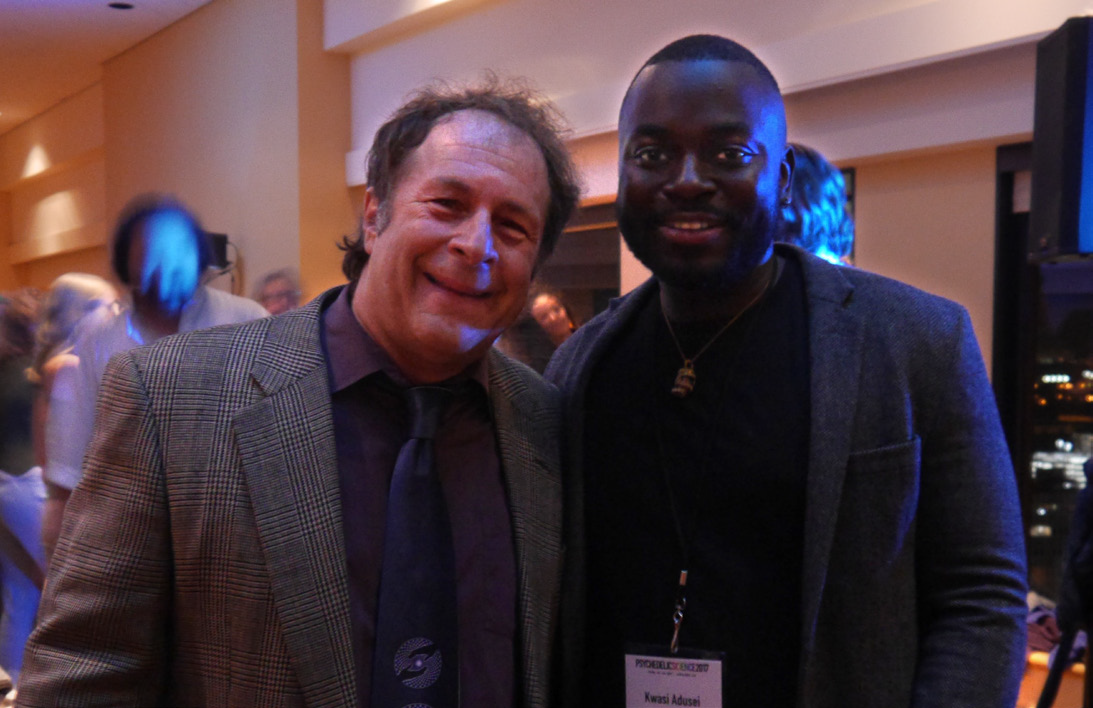
Four years later, Psychedelic Science 2017 brought together about 3000 attendees, about 1000 more attendees than Psychedelic Science 2013 in the same location. This year’s event was sponsored by MAPS and the Beckley Foundation. It brought together a piece of each and every psychedelic gathering that came before it, and was the world’s largest psychedelic conference to date. Labate was the curator of the Plant Medicine Track and Community Forums. “The Plant Medicine track made a proactive effort to be multidisciplinary, inclusive, and diverse, keeping a strong scientific focus. Of the 50 speakers that were presented, 30 were men and 20 women, advancing the balance of what has been traditionally a heavily male-dominated field. Researchers came from disciplines such as anthropology, sociology, political science, geography, history, law, biology, chemistry, pharmacology, neuroscience, medicine, psychiatry, psychology, public health, communications, environmental science, and drug policy,” explains Labate. “Above all, by giving space to multiple voices, we recognized that science does not happen in a vacuum, but rather is inserted in a specific socio-cultural context.”
Beckley Foundation Founder Amanda Fielding has been a long-time supporter of psychedelic research and drug policy, where she and the Beckley Foundation together have supported and funded ongoing LSD research in the United Kingdom for many decades. The Beckley Foundation is starting two new studies researching the therapeutic potential of LSD combined with psychotherapy for treating addiction and the potential health benefits of microdosing LSD. “My own passion for exploring these issues was born over 50 years ago, after gaining a new understanding of the physiological changes underlying altered states of consciousness brought about by LSD. In 1998, I set up the Beckley Foundation to scale the political wall that had kept psychedelics out of contemporary medicine since the late 1960s,” explains Feilding. “These compounds have become so taboo that in order to reintegrate them into society, we have to use the very best scientific evidence as to how they work in the brain, how they can be beneficial to mankind.”
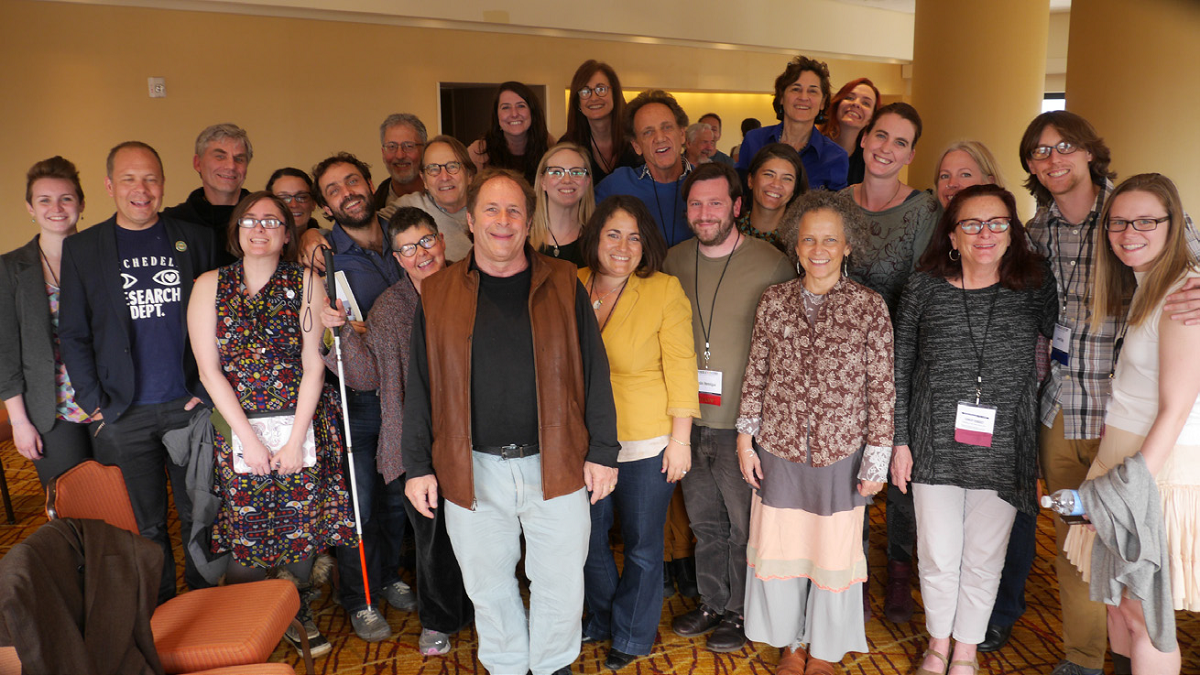
Psychedelic Science 2017 set out to do just that, to highlight the growing array of scientific evidence that psychedelics have the potential to treat and heal many chronic behavioral health problems for which, for many people, traditional medicines aren’t working. MAPS Founder Rick Doblin, Ph.D., says that the progress MAPS’ had made in bringing the MDMA-assisted psychotherapy for PTSD studies through to the end of Phase 2 and reaching the start of Phase 3 studies is what really ended up exciting a lot of people. There have been great strides in psychedelic research worldwide from ayahuasca research in South America to LSD research in the United Kingdom. Doblin also mentioned that along with the remarkable developments in scientific research, getting everyone together from the psychedelic community and adding an additional layer to this year’s conference through the addition of drug policy talks made this year that much more interesting. He highlighted his excitement for being able to have the Executive Director of the Drug Policy Alliance Ethan Nadelmann present, which was an important aspect to Psychedelic Science 2017.This was Ethan’s last public presentation before he retired from the DPA.
Another important addition to this year’s conference was MAPS Policy and Advocacy Director Natalie Ginsberg and MAPS Policy Fellow Ismail Ali, J.D., working together to allocate scholarships to 22 Perspectives Grant Awardees to attend the conference with a grant supported by the Open Society Foundations. One Perspectives Grant Awardee Karina Muscarina, from Mexico City, directed and produced a documentary featuring a collection of testimonials from some of those who received the scholarship that shared their stories and experiences from attending the conference.
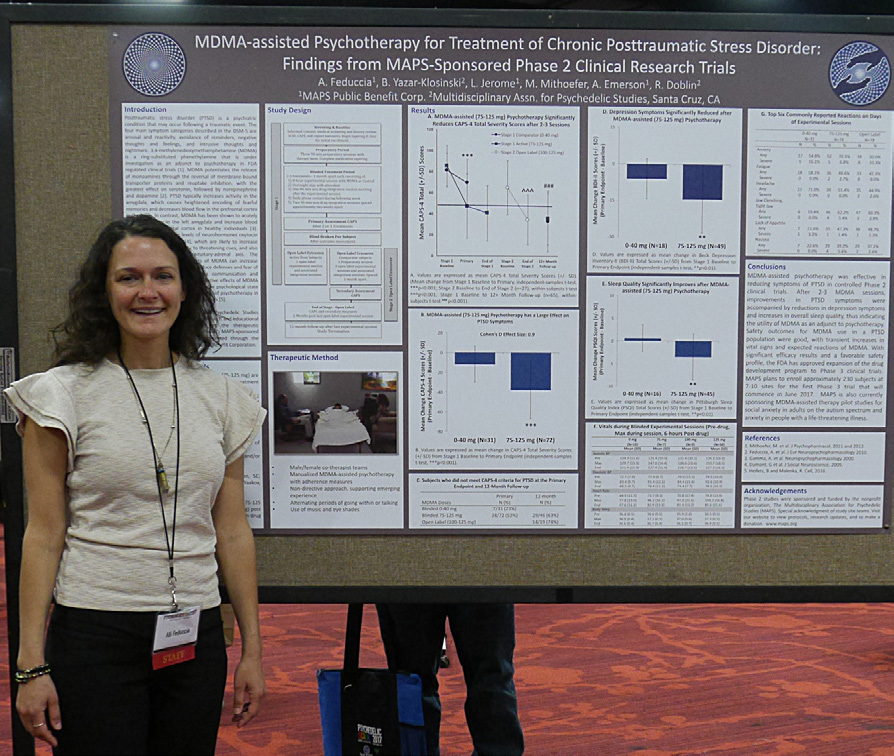
“I met some really amazing people through the Perspectives Scholarship,” explains LisaNa Red Bear. “I feel that this conference was absolutely a success. People’s hearts and minds were open to things that they had not necessarily experienced or heard before.”
A student of the University of Buffalo and Founder of Psychedelic Society Western New York, Kwasi Adusei, said, “I’ve always been very serious about my education and I’ve always loved psychedelics. I’ve always loved the psychedelic experience, but where I’m from I didn’t really meet people who had the same sets of interests and values to the extent that I did. Coming here I’m surrounded by people who are engaged in so many different things. They are student leaders, leaders in their community, but they are also very intelligent and deep into academics. A lot people were studying for their Ph.D.’s, or working on their masters in counseling programs, and are also very in love with psychedelics.” He continued, “It’s an opportunity that I will be forever grateful for.”
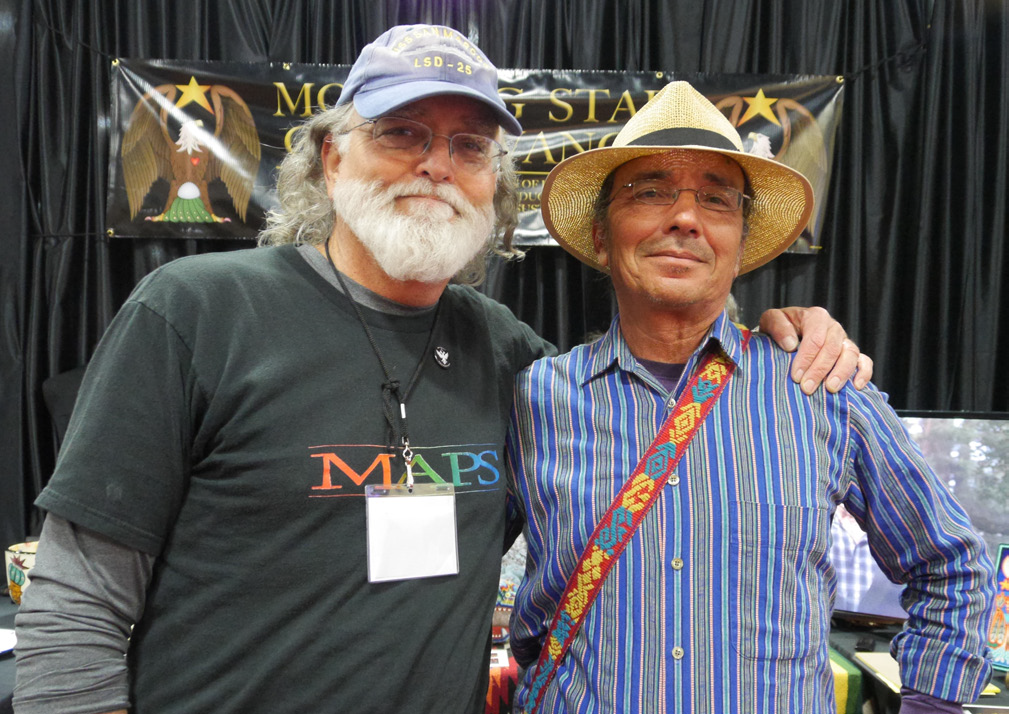
Students for Sensible Drug Policy Board member for Ghana, Juana Akuamoah Boateng, explained, “I’m currently into drug policy, advocacy, and I educate people on drugs. I know many of my people back home have no idea or little idea about psychedelic science and what it is all about. I woke up one day and I had an email from Natalie talking about psychedelic science. I was so happy when she gave me the opportunity to be a part of this great conference and she offered me the scholarship and that was where it started.”
There are still many ways in which Psychedelic Science conferences in the future can improve. A conference volunteer asked a relevant question, “How do we hear from, see more with people and communities of color, indigenous and non-indigenous, present not as tokens of inclusion but just because they are people with valid experience and insights too?” Another conference attendee said, “There wasn’t enough recognition and respect of the roots for indigenous medicines. These people have been using plant medicines for thousands of years because they know it is healing. I want to hear about their knowing and how they have been doing it.”

Another attendee expressed that the conference needed, “more diversity among presenters.” At the next Psychedelic Science conference Doblin says, “Hopefully, we’ll have a more diverse set of speakers, hopefully we’ll have more women and minorities presenting their research.” Plant Medicine Track Curator Bia Labate, Ph.D., was working to solve these issues this year through the plant medicine track and community forums. “The community forums are a very good venue to advance a real dialogue and bridge between practitioners and scientists. So, we need to educate scientists about the cultural sensitivities of their work and likewise we need to open practitioner’s minds to understand better what is scientific research and, perhaps, to find ways to collaborate and work together in a better way,” explains Labate.
Psychedelic Science conferences have progressed a great deal from the beginning of the psychedelic gatherings and there is a lot to expect in the future. It should not be surprising, when the amount of positive and potentially life-saving research findings have been more well-received, and the stigma surrounding psychedelics lessened every year. The psychedelic gatherings and conferences from previous years played a significant role in shaping the Psychedelic Science 2017 conference and the collaborative efforts of joining like-minded people together to share and learn about the field of psychedelic science, drug policy and advocacy, plant medicine, harm reduction, and the community within it. One conference attendee expressed, “I met many likeminded individuals, and I see MAPS as a beacon for like-minded individuals and a groundbreaking presence in the psychedelic community.”
Doblin explains that these conferences, “offer an opportunity to come out from the shadows and to speak more freely in public and see the strength of the community. Opportunities for reunions, for planning ahead.” He says it’s worth relating these conferences to the gay rights movement, “this whole concept of people coming out which is what really led to a lot of progress, because gay people were not ashamed. We’re out and we’re proud. I think that’s what was happening at these Psychedelic Science conferences, too.” Doblin expresses that the psychedelic community and organizations that are working with psychedelic research, “need to be transparent which is really a crucial factor in how we move forward with the culture. We have to be very good about letting people know what we’re doing and that’s an essential aspect of keeping us successful— not doing it in secret, and offering it to the public.”
With MAPS’ MDMA-assisted psychotherapy for PTSD studies transitioning from Phase 2 to Phase 3, receiving Breakthrough Therapy Designation from the U.S. Food and Drug Administration, and MDMA on the cusp of becoming a legal prescription medicine, the next Psychedelic Science conference, “is going to be even bigger,” explains Doblin. “What made 2017 so good was the Phase 2-Phase 3 transition. The next one is going to be coming at the Phase 3-prescription use transition, so I think that is going to attract way more people.” There is a strong foundation for future psychedelic research and findings, and Psychedelic Science 2017 really showcased that this year. “The success of them has to do with the whole community being together. That’s a really important aspect of it that is worth emphasizing,” says Doblin.
References
Doblin, R. (1993). The Summit Meeting Commemorating the 50th Anniversary of Albert Hofmann’s Discovery of LSD. MAPS Bulletin Summer 2003. 4(2).
Doblin, R. (2017, August 11). Personal interview.
International Symposium on the Occasion of the 100th Birthday of Albert Hoffman. (2006, January 13–15). Retrieved from http://www.lsd.info/en/index.html
Labate, BC. (2017, March 31). From “Ethnomedicine” to “Medicine”: A Glimpse into the World of Scientific Research on Psychedelic Plant Medicines. The Huffington Post.
Labate, BC. (2017). Community Forums at Psychedelic Science 2017: A Vibrant Dialogue Between Scientists and Practitioners. MAPS Bulletin Spring 2017. 27(1).
Muscarina, K. (2017, August 13). Perspectives Scholarship. [Video file]. Retrieved from https://www.youtube.com/watch?v=6OOu0BzUtMs
Praise for Psychedelic Science in the 21st Century. (2010). MAPS Bulletin Winter 2010. 20(3).
Psychedelic Science 2017. (2017, April 19–24). Retrieved from http://psychedelicscience.org/
Psychedelic Science 2013. (2013, April 18–23). Retrieved from http://2013.psychedelicscience.org/
Schwartz, C. (2017, May 6). Molly at the Marriot: Inside America’s Premier Psychedelics Conference. The New York Times.
Warren, J. (1993, April 16). LSD Makes a Return Trip: As Drug Reappears on the Scene, Many Warn of Risks. The Los Angeles Times.
Weissmueller Z, Manning A. (2017, May 12). Psychedelic Drugs: The Future of Mental Health. Reason TV.
World Psychedelic Forum. (2008, March 21–24). Retrieved from http://www.psychedelik.info/index_2_eng.html

Cara LaChance O’Neill, MAPS Social Media Communications and Marketing Associate, earned her B.A. in English Languages and Literature from the University of California, Santa Cruz, where she became fascinated by social justice movements and the effects of contemporary literature on society. She is interested in finding ways to help those struggling with addiction and volunteers in the local Santa Cruz community. Growing up during a generation driven by prohibition rather than education, she believes a globalized misinterpretation has evolved into stigmatized ideologies concerning psychedelics and marijuana. Cara believes that drug use is a personal right and freedom and that drug abuse is a health care problem and not a criminal one. She believes in the possibility of a post-prohibition world and that continual progression of psychedelic and marijuana research is helping to move this possibility forward. She feels honored to be a part of such a humanely conscious organization. She can be reached at cara@maps.org.


